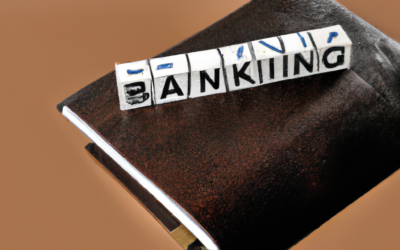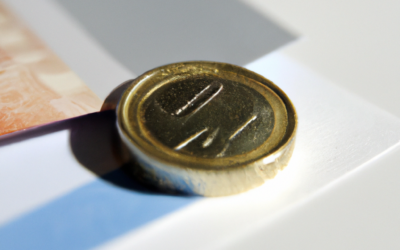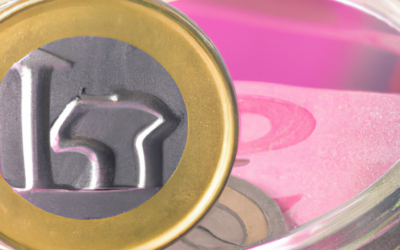PRESS RELEASE | JANUARY 19, 2024
FDIC DEMANDS FIVE ENTITIES CEASE MAKING FALSE OR MISLEADING REPRESENTATIONS ABOUT DEPOSIT INSURANCE
In a move to protect consumers from deceptive practices, the Federal Deposit Insurance Corporation (FDIC) has issued letters demanding that five entities and their associated parties immediately stop making false or misleading claims about FDIC deposit insurance. The entities named in the letters are Atmos Financial, PBC (Atmos); BybitcoinEx, Inc. (BybitcoinEx); ORGANO Payments, Inc. and its subsidiary OGPay (OGPay); Horizon Globex GmbH (Horizon), which operates Upstream Exchange; and Zil Money Corporation (Zil). The FDIC is demanding that these entities take immediate corrective action to address these false or misleading statements.
The FDIC’s evidence collection process has revealed that these companies and certain associated parties have made false representations in several ways. Firstly, they have stated or suggested that they are FDIC-insured or that certain uninsured financial products are insured by the FDIC. Secondly, they have misused the FDIC name or logo. Thirdly, they have misrepresented the nature or extent of deposit insurance. Lastly, they have failed to clearly identify the insured depository institutions with which they have a relationship for the placement of customer deposits and into which funds may be deposited. These misrepresentations and omissions are not only false and misleading but also have the potential to harm consumers.
FDIC Chairman Martin J. Gruenberg emphasized the importance of combating misrepresentations about deposit insurance coverage, stating that it goes to the heart of the FDIC’s mission of maintaining stability and public confidence in the nation’s banking system. False promises of deposit insurance not only confuse and harm consumers but also have the potential to undermine confidence in the FDIC, FDIC-insured banks, and the U.S. banking system as a whole.
The Federal Deposit Insurance Act (FDI Act) explicitly prohibits any person from representing or implying that an uninsured financial product is FDIC-insured or from knowingly misrepresenting the extent and manner of deposit insurance. Additionally, the FDI Act prohibits companies from using “FDIC” in their name, advertisements, or other documents to imply that they are FDIC-insured or that their products are FDIC-insured. The FDIC is authorized to enforce these prohibitions against any person.
To strengthen regulatory measures, the FDIC recently adopted a final rule on December 20, 2023, to amend part 328 of its regulations. This update addresses false advertising, misrepresentations of deposit insurance coverage, and misuse of the FDIC’s name and logo. The new rule clarifies that FDIC-associated terms or images may not be used in marketing and advertising materials to inaccurately imply or represent that any uninsured financial product or non-bank entity is insured or guaranteed by the FDIC.
FDIC deposit insurance plays a crucial role in protecting customers in the unlikely event of the failure of an insured depository institution. Consumers can verify if an institution is FDIC-insured by asking a representative of the institution, looking for the FDIC sign at the institution, or using the FDIC’s BankFind tool. For more information on FDIC deposit insurance and digital asset companies, refer to the attached fact sheet.
For media inquiries, please contact Carroll Kim at carrkim@fdic.gov.
###
Frequently Asked Questions:
Q: Why is the FDIC demanding that these entities cease making false deposit insurance claims?
A: The FDIC is taking action to protect consumers from deceptive practices and to maintain public confidence in the nation’s banking system. False or misleading claims about FDIC deposit insurance can harm consumers and undermine trust in the FDIC, FDIC-insured banks, and the U.S. banking system.
Q: What are the false representations made by these entities?
A: The entities named in the FDIC’s letters have made false representations by stating or suggesting that they are FDIC-insured or that certain uninsured financial products are insured by the FDIC. They have also misused the FDIC name or logo, misrepresented the nature or extent of deposit insurance, and failed to clearly identify the insured depository institutions with which they have a relationship for the placement of customer deposits.
Q: Can consumers verify if an institution is FDIC-insured?
A: Yes, consumers can verify if an institution is FDIC-insured by asking a representative of the institution, looking for the FDIC sign at the institution, or using the FDIC’s BankFind tool.
Q: What is the purpose of FDIC deposit insurance?
A: FDIC deposit insurance protects customers in the unlikely event of the failure of an insured depository institution. It provides a safety net for depositors and helps maintain stability in the banking system.
Q: How can consumers ensure the safety of their deposits?
A: Consumers can ensure the safety of their deposits by choosing FDIC-insured banks and verifying the institution’s FDIC insurance status. The FDIC provides resources such as the BankFind tool to help consumers make informed decisions.
Q: What is the role of the FDIC in enforcing regulations regarding deposit insurance?
A: The FDIC is authorized by the Federal Deposit Insurance Act to enforce regulations regarding deposit insurance. This includes preventing false or misleading representations about FDIC deposit insurance and taking action against entities that violate these regulations.
Table: Entities and Their Actions
| Entity | Actions |
|———————–|————————————————————–|
| Atmos Financial, PBC | Stated or suggested they are FDIC-insured |
| BybitcoinEx, Inc. | Stated or suggested certain uninsured products are FDIC-insured |
| ORGANO Payments, Inc. | Misused the FDIC name or logo |
| Horizon Globex GmbH | Misrepresented the nature or extent of deposit insurance |
| Zil Money Corporation | Failed to clearly identify relationship with insured entities |
For more information about the FDIC and its regulations, please visit [VisBanking](https://visbanking.com/).





